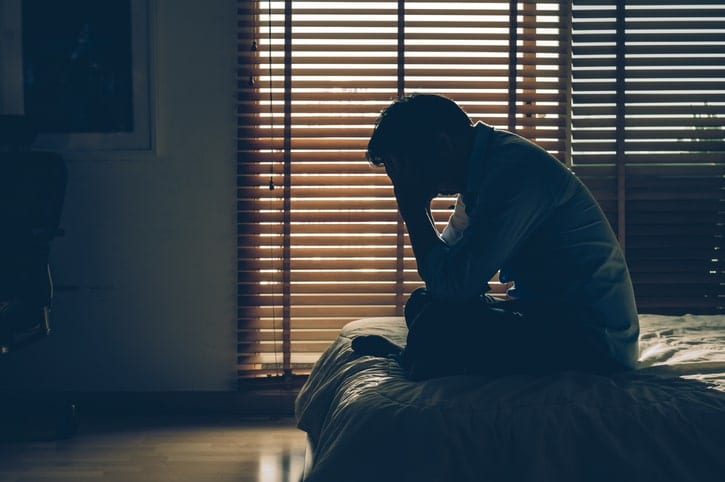Depression and Addiction
If you are suffering from addiction, you are more than likely also suffering from another trauma, as well. This can include such things as mental illness, like depression. Mental illness and addiction often work together to exacerbate the other. Do you find yourself reaching for a drink or drugs if your depression has escalated? Does your depression feel worse in the days after a particularly long drug or alcohol binge? Are you not able to control your drug or alcohol use, especially if your depression is in overdrive?
Recognizing you have a problem with drugs or alcohol is the most important step toward recovery. Also deciding that you need treatment for your co-occurring depression can be a life-saving decision. It can be hard to determine which issue needs treatment and how exactly to overcome both illnesses. It’s the age-old question: which came first, the chicken or the egg?
The Gateway to Addiction
Millions of people suffer from depression. In fact, the Centers for Disease Control and Prevention estimates that 10 percent of Americans suffer from this psychiatric disorder. While everyone has bad days, depression is a mental illness in which there is a chemical imbalance in the brain. According to the American Psychiatric Association, this can be due to biochemistry, genetics, personality and other environmental factors. Depression causes feelings of extreme sadness and/or a loss of interest in activities someone once enjoyed. It can lead to a variety of emotional and physical problems that can decrease a person’s ability to function at work and at home.
Depression is treatable with medication and regular counseling, however, some people choose to self-medicate with drugs and alcohol. Self-medicating allows the person suffering from depression to become numb to their sad feelings, forget their negative thoughts, or in some cases, allow them to be more social and talkative in situations where their depression may have held them back.
While drugs and alcohol may temporarily mask emotions and feelings in the short-term, it can prove to be deadly in the long run. It can lead to a spiral of addiction, worsening the depression and can eventually become fatal.
Co-occurring Disorders and Dual Diagnosis
In a study by the Journal of Clinical Psychiatry, one in three adults who struggle with alcohol or drug abuse also suffers from depression. That being said, substance abuse is common amongst people who suffer from a mental illness. That is why it is important to treat both the depression and the addiction at the same time in order to ensure long-lasting sobriety. Treating both at the same time in treatment is called having a dual diagnosis.
Addiction is much deeper than just kicking a bad habit. Being able to detox from a substance and resist it’s temptations is only a small part of recovery. Addiction is rooted in trauma, so if the trauma is not treated, then the addiction will eventually resurface. Similarly, if the depression is treated but not the addiction, then the depression will eventually resurface.
Co-occurring disorders can mean many things. It can also include anxiety, eating disorders, PTSD, OCD or gambling issues. Mental illness and addiction work hand-in-hand, which makes treatment for both at the same time essential for a healthy recovery. In addition, people can become addicted to the medication that is treating their depression or anxiety. If this medication is taken by following the proper dosing instructions, it can prove to be very effective. However, it can become easy to abuse this medication for people who are more susceptible to the disease of addiction.
Support Systems
Having a strong support system to help you through recovery is essential. We believe that making the family an integral part of the recovery process is one of the most important pieces of treatment. When the family is able to learn signs of their loved one’s depression, they will be better able to assist them with the things they have learned in the family program.
In addition, treatment can provide a caring support system in itself. Being able to lean on others in a group therapy setting is extremely beneficial to one’s recovery. Learning other’s experiences, getting advice from counselors and alumni, and having a safe place to share difficulties can teach someone how to open up to people. In the future, they will be more inclined to ask for help or reach out to other people.
About Pinelands Recovery Center
Recovery from both depression and addiction is possible. Treating both at the same time will allow you to overcome this difficult time in your life, and you will learn how to live a healthy, happy life without drugs or alcohol. Learning coping skills for depression other than drugs and alcohol is a key part of recovery from depression, and it is possible.
Pinelands Recovery Center of Medford is widely known as one of New Jersey’s finest, most respected addiction treatment facilities. With comfortable 30-bed accommodations and a 24-hour professional staff, we can offer clients a serene, relaxing environment amid the lush piney woods. This stress-free setting with its sense of warmth and welcoming enables you to feel comfortable and confident about your clean and sober life ahead.
We will establish clear goals, both general in nature and specific to your needs. We continue to monitor those goals, to make sure that our clients are progressing and buying into their recovery plan. We thrive on assisting clients in feeling connected to the recovery community, share and demonstrate effective coping techniques, help clients to modify attitudes and patterns of behavior and everything else you will need to be happy and productive living a sober, healthy life.
We ensure that clients complete their planned concrete tasks, encourage hope, optimism and
healthy living. Our recovery program is not a revolving door treatment program; it is a recovery model designed to help clients go on to lead productive, happy lives. For more information, visit pinelandsrecovery.com
